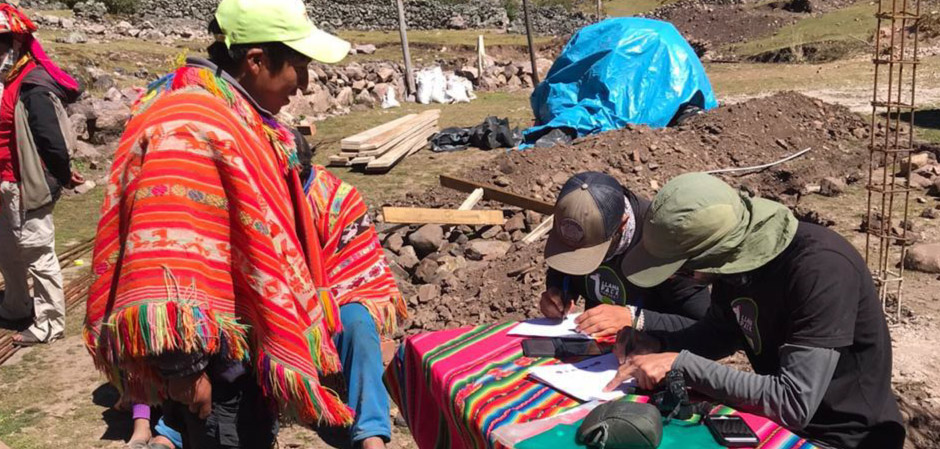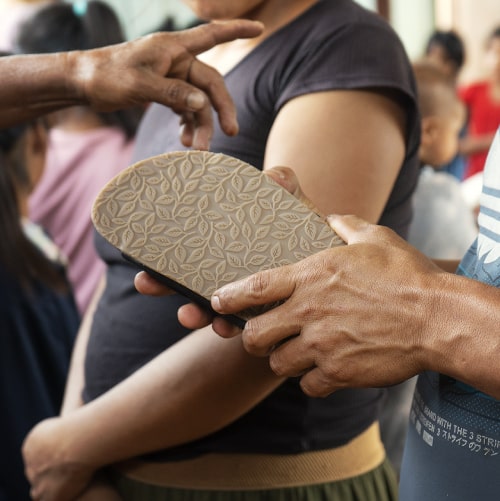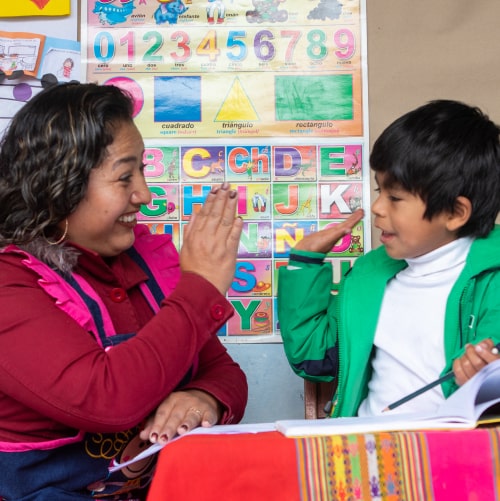Thanks to the work coordinated between its cofounders and the local people of the Sacred Valley of the Incas, this social venture was part of the Wiese Foundation’s Entrepreneurship Fund.
Llama Pack is a Peruvian business that has its origin in the bellybutton of the world. Ever since they decided to launch this idea in this area, the lives of those who lightly found themselves involved in this business have changed radically, because the team is not just made up of Jorge Gálvez Aramburú and Alejandra Arias-Stella, its cofounders; but also of the local people of the Sacred Valley of the Incas, in the region of Cusco, where this social business, which formed part of the first cohort of the Wiese Foundation’s Entrepreneurship Fund, was born.
This social venture, that includes the local Cuzqueñans of the Sacred Valley of the Incas in the economic dynamics of local tourism through the use of llamas as pack animals for the tours offered by travel agents, has the objective of protecting the Andean ecosystem through various programs that promote inclusion and care for nature.

“My husband is a mountain climber. He made a lot of friends when he lived in Urubamba and visited the communities on his hikes. In this process, we saw that in these sectors, one of the principal tourist destinations of the country, there was great inequality and poverty in the families. To these two factors, we added that the mountains of Urubamba are an area that is very sensitive to climate change, and which received a very disorganized amount of tourism. Those were the three factors that motivated us to create Llama Pack, where we use the llama as a pack animal, implementing the previous knowledge that my husband had from his previous jobs”, recounts Alejandra Arias-Stella, cofounder of Llama Pack, about the business that she is developing in Cusco.
Since 2012, Llama Pack has worked with llamas, to recover their raising and traditional use as pack animals. An activity that worked despite the imposing temperament of the Peruvian mountains and the cultural value that has been extinguished in some parts of the region.
“The project was developed thanks to the interest of two families that supported the use of llamas as a pack animal. Once they did it, other people wanted to join in the initiative. Then they realized, for the first time, that they could make money with their animals, and it is not just a touristic service, but it goes beyond that”, explains Alejandra.
Fundamental alliances
Llama Pack is successful in its model thanks to the alliances it has formed with the local people of the areas it operates in, the communities of Urubamba, in Cusco, and the specialists of Puno and its surroundings. All of these, from the beginning, have been a chain of help, along with the the Wiese Foundation, which chose this venture to form part of the first cohort of the Entrepreneurship Fund.
“The Entrepreneurship Fund helped us in many ways. From the economic side of things, with a bonus for the families, to the moral side of things, helping us with the diffusion of campaigns for fundraising. They were always very sensitive and understanding of the situation that we experienced during the pandemic. The Wiese Foundation has been open to helping us at all times, keeping in mind the hit that tourism took during the quarantine. Participating in this Fund has been a very humanistic experience”, comments Alejandra.
The support of the Wiese Foundation during these last two years has meant a great transformation for this venture that is changing lives in the old capital of Tahuantinsuyo, a hard job that is built little by little, with grand, solid aspirations, like the marvelous structures of the mother culture of Peru.
About Llama Pack
Llama Pack operates in the high Andean communities situated along the Urubamba mountains, parallel to the Sacred Valley of the Incas, and exists to support the local agricultural and pastoral sectors by generating an alternative source of income, and at the same time offering a service of social and environmental tourism.
About the Entrepreneurship Fund
The Entrepreneurship Fund is an initiative of the Wiese Foundation that invests in ventures with clear potential for growth, self-sustainability, and social impact, whose mission is to address a relevant social problem in the country.
Empanacombi, Estrafalario, Llama Pack, and Pixed were the four businesses carefully selected in this first edition by the Wiese Foundation, together with NESsT, which fulfilled three important requirements: having been created with the mission of addressing a relevant social problem for the most vulnerable communities of the country, finding themselves in the first stages of their operation, and demonstrating the success of their business model in terms of potential for economic growth, self-sustainability, and social impact.









